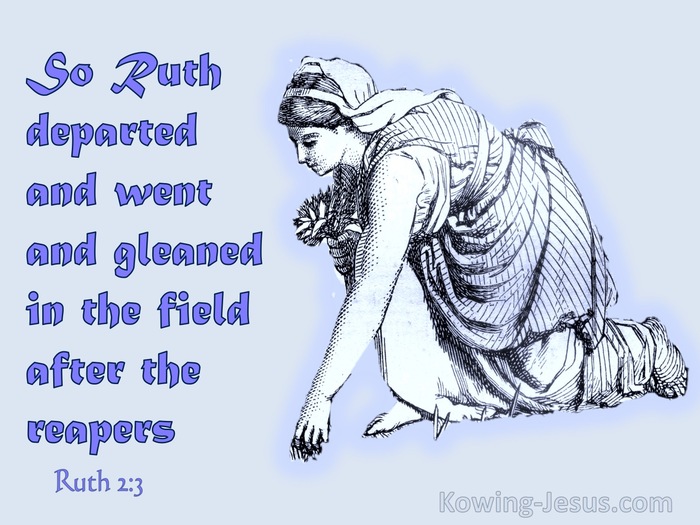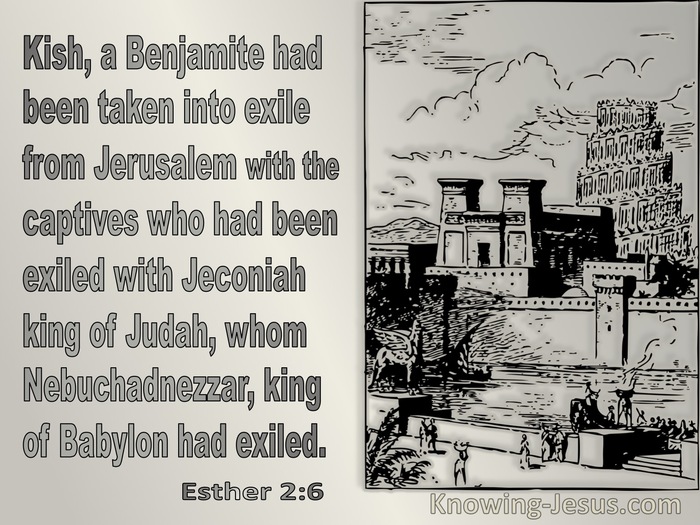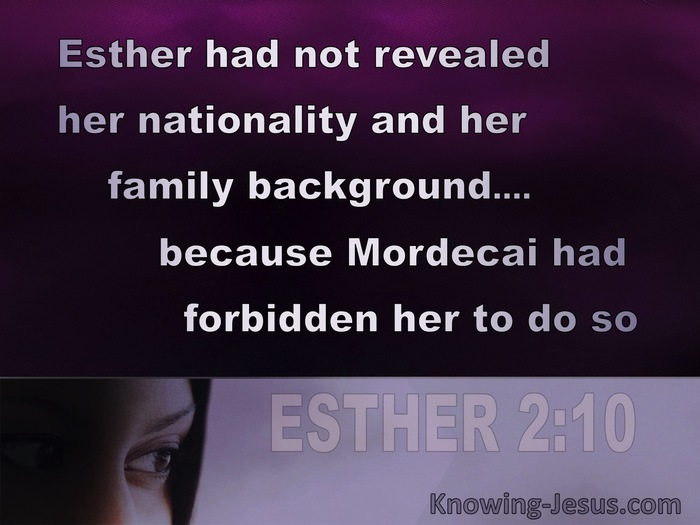26 Bible Verses about God's Mercy, Example Of
Most Relevant Verses
But Lot hesitated and lingered. The men took hold of his hand and the hand of his wife and the hands of his two daughters, because the Lord was merciful to him [for Abraham’s sake]; and they brought him out, and left him outside the city [with his family].
He certainly was sick and close to death. But God had mercy on him, and not only on him but also on me, so that I would not have sorrow upon sorrow.
even though I was formerly a blasphemer [of our Lord] and a persecutor [of His church] and a shameful and outrageous and violent aggressor [toward believers]. Yet I was shown mercy because I acted out of ignorance in unbelief.
Now Joseph had been taken down to Egypt; and Potiphar, an Egyptian officer of Pharaoh, the captain of the [royal] guard, bought him from the Ishmaelites, who had taken him down there. The Lord was with Joseph, and he [even though a slave] became a successful and prosperous man; and he was in the house of his master, the Egyptian. Now his master saw that the Lord was with him and that the Lord caused all that he did to prosper (succeed) in his hand. read more.
So Joseph pleased Potiphar and found favor in his sight and he served him as his personal servant. He made Joseph overseer over his house, and he put all that he owned in Joseph’s charge.
Now Joseph had been taken down to Egypt; and Potiphar, an Egyptian officer of Pharaoh, the captain of the [royal] guard, bought him from the Ishmaelites, who had taken him down there.
and they said to him, “Joseph is still alive, and indeed he is ruler over all the land of Egypt.” But Jacob was stunned and his heart almost stopped beating, because he did not believe them. When they told him everything that Joseph had said to them, and when he saw the wagons which Joseph had sent to carry him, the spirit of their father Jacob revived. And Israel (Jacob) said, “It is enough! Joseph my son is still alive. I will go and see him before I die.”
Then Isaac brought her into his mother Sarah’s tent, and he took Rebekah [in marriage], and she became his wife, and he loved her; therefore Isaac was comforted after his mother’s death.
Now Sarai, Abram’s wife, had not borne him any children, and she had an Egyptian maid whose name was Hagar. So Sarai said to Abram, “See here, the Lord has prevented me from bearing children. I am asking you to go in to [the bed of] my maid [so that she may bear you a child]; perhaps I will obtain children by her.” And Abram listened to Sarai and did as she said. After Abram had lived in the land of Canaan ten years, Abram’s wife Sarai took Hagar the Egyptian [maid], and gave her to her husband Abram to be his [secondary] wife. read more.
He went in to [the bed of] Hagar, and she conceived; and when she realized that she had conceived, she looked with contempt on her mistress [regarding Sarai as insignificant because of her infertility]. Then Sarai said to Abram, “May [the responsibility for] the wrong done to me [by the arrogant behavior of Hagar] be upon you. I gave my maid into your arms, and when she realized that she had conceived, I was despised and looked on with disrespect. May the Lord judge [who has done right] between you and me.” But Abram said to Sarai, “Look, your maid is entirely in your hands and subject to your authority; do as you please with her.” So Sarai treated her harshly and humiliated her, and Hagar fled from her. But the Angel of the Lord found her by a spring of water in the wilderness, on the road to [Egypt by way of] Shur. And He said, “Hagar, Sarai’s maid, where did you come from and where are you going?” And she said, “I am running away from my mistress Sarai.” The Angel of the Lord said to her, “Go back to your mistress, and submit humbly to her authority.” Then the Angel of the Lord said to her, “I will greatly multiply your descendants so that they will be too many to count.” The Angel of the Lord continued,
“Behold, you are with child,
And you will bear a son;
And you shall name him Ishmael (God hears),
Because the Lord has heard and paid attention to your persecution (suffering).
“He (Ishmael) will be a wild donkey of a man;
His hand will be against every man [continually fighting]
And every man’s hand against him;
And he will dwell in defiance of all his brothers.” Then she called the name of the Lord who spoke to her, “You are God Who Sees”; for she said, “Have I not even here [in the wilderness] remained alive after seeing Him [who sees me with understanding and compassion]?” Therefore the well was called Beer-lahai-roi (Well of the Living One Who Sees Me); it is between Kadesh and Bered. So Hagar gave birth to Abram’s son; and Abram named his son, to whom Hagar gave birth, Ishmael (God hears). Abram was eighty-six years old when Hagar gave birth to Ishmael.
Now Sarai, Abram’s wife, had not borne him any children, and she had an Egyptian maid whose name was Hagar.
Now the Lord God said, “It is not good (beneficial) for the man to be alone; I will make him a helper [one who balances him—a counterpart who is] suitable and complementary for him.”
They listened [to His reply], and they began to go out one by one, starting with the oldest ones, until He was left alone, with the woman [standing there before Him] in the center of the court. Straightening up, Jesus said to her, “Woman, where are they? Did no one condemn you?” She answered, “No one, Lord!” And Jesus said, “I do not condemn you either. Go. From now on sin no more.”]
So Ruth went and picked up the leftover grain in a field after the reapers; and she happened to stop at the plot of land belonging to Boaz, who was of the family of Elimelech.
So the two of them went on until they came to Bethlehem. And when they arrived in Bethlehem, the whole city was stirred because of them, and the women asked, “Is this Naomi?”
Then Ruth the Moabitess said, “He also said to me, ‘Stay close to my servants until they have harvested my entire crop.’”
Soon afterward, Jesus began going around from one city and village to another, preaching and proclaiming the good news of the kingdom of God. The twelve [disciples] were with Him, and also some women who had been healed of evil spirits and diseases: Mary, called Magdalene [from the city of Magdala in Galilee], from whom seven demons had come out, and Joanna, the wife of Chuza, Herod’s household steward, and Susanna, and many others who were contributing to their support out of their private means [as was the custom for a rabbi’s disciples]. read more.
When a large crowd was gathering together, and people from city after city were coming to Him, He spoke [to them] using a parable: “The sower went out to sow his seed; and as he sowed, some fell beside the road and it was trampled underfoot, and the birds of the sky ate it up. And some seed fell on [shallow soil covering] the rocks, and as soon as it sprouted, it withered away, because it had no moisture. Other seed fell among the thorns, and the thorns grew up with it and choked it out. And some fell into good soil, and grew up and produced a crop a hundred times as great.” As He said these things, He called out, “He who has ears to hear, let him hear and heed My words.” Now His disciples began asking Him what this parable meant. And He said, “To you [who have been chosen] it has been granted to know and recognize the mysteries of the kingdom of God, but to the rest it is in parables, so that though seeing they may not see, and hearing they may not understand. “Now [the meaning of] the parable is this: The seed is the word of God [concerning eternal salvation].
Soon afterward, Jesus began going around from one city and village to another, preaching and proclaiming the good news of the kingdom of God. The twelve [disciples] were with Him,
Jesus entered Jericho and was passing through. And there was a man called Zaccheus; he was a chief tax collector [a superintendent to whom others reported], and he was rich. Zaccheus was trying to see who Jesus was, but he could not see because of the crowd, for he was short in stature. read more.
So he ran on ahead [of the crowd] and climbed up in a sycamore tree in order to see Him, for He was about to pass through that way. When Jesus reached the place, He looked up and said to him, “Zaccheus, hurry and come down, for today I must stay at your house.” So Zaccheus hurried and came down, and welcomed Jesus with joy. When the people saw it, they all began muttering [in discontent], “He has gone to be the guest of a man who is a [notorious] sinner.” Zaccheus stopped and said to the Lord, “See, Lord, I am [now] giving half of my possessions to the poor, and if I have cheated anyone out of anything, I will give back four times as much.” Jesus said to him, “Today salvation has come to this household, because he, too, is a [spiritual] son of Abraham; for the Son of Man has come to seek and to save that which was lost.”
One of the Pharisees asked Jesus to eat with him, and He went into the Pharisee’s house [in the region of Galilee] and reclined at the table. Now there was a woman in the city who was [known as] a sinner; and when she found out that He was reclining at the table in the Pharisee’s house, she brought an alabaster vial of perfume; and standing behind Him at His feet, weeping, she began wetting His feet with her tears, and wiped them with the hair of her head, and [respectfully] kissed His feet [as an act signifying both affection and submission] and anointed them with the perfume. read more.
Now when [Simon] the Pharisee who had invited Him saw this, he said to himself, “If this Man were a prophet He would know who and what sort of woman this is who is touching Him, that she is a [notorious] sinner [an outcast, devoted to sin].” Jesus, answering, said to the Pharisee, “Simon, I have something to say to you.” And he replied, “Teacher, say it.” “A certain moneylender had two debtors: one owed him five hundred denarii, and the other fifty. When they had no means of repaying [the debts], he freely forgave them both. So which of them will love him more?” Simon answered, “The one, I take it, for whom he forgave more.” Jesus said to him, “You have decided correctly.” Then turning toward the woman, He said to Simon, “Do you see this woman? I came into your house [but you failed to extend to Me the usual courtesies shown to a guest]; you gave Me no water for My feet, but she has wet My feet with her tears and wiped them with her hair [demonstrating her love]. You gave Me no [welcoming] kiss, but from the moment I came in, she has not ceased to kiss My feet. You did not [even] anoint My head with [ordinary] oil, but she has anointed My feet with [costly and rare] perfume. Therefore I say to you, her sins, which are many, are forgiven, for she loved much; but he who is forgiven little, loves little.” Then He said to her, “Your sins are forgiven.” Those who were reclining at the table with Him began saying among themselves, “Who is this who even forgives sins?” Jesus said to the woman, “Your faith [in Me] has saved you; go in peace [free from the distress experienced because of sin].”
As He was approaching Jericho [on His way to Jerusalem], it happened that a blind man was sitting beside the road begging. Now when he heard a crowd going by, he began to ask what this was [about]. They told him, “Jesus of Nazareth is passing by.” read more.
So he shouted out, saying, “Jesus, Son of David (Messiah), have mercy on me!” Those who were leading the way were sternly telling him to keep quiet; but he screamed all the more, “Son of David, have mercy on me!” Then Jesus stopped and ordered that the blind man be led to Him; and when he came near, Jesus asked him, “What do you want Me to do for you?” He said, “Lord, let me regain my sight!” Jesus said to him, “Regain your sight; your [personal trust and confident] faith [in Me] has made you well.” Immediately he regained his sight and began following Jesus, glorifying and praising and honoring God. And all the people, when they saw it, praised God.
Soon afterward Jesus went to a city called Nain [near Nazareth], and His disciples and a large crowd accompanied Him. Now as He approached the city gate, a dead man was being carried out—the only son of his mother, and she was a widow. And a large crowd from the city was with her [in the funeral procession]. When the Lord saw her, He felt [great] compassion for her, and said to her, “Do not weep.” read more.
And He came up and touched the bier [on which the body rested], and the pallbearers stood still. And He said, “Young man, I say to you, arise [from death]!” The man who was dead sat up and began to speak. And Jesus gave him back to his mother.
In the days of Herod [the Great], king of Judea, there was a certain priest whose name was Zacharias, of the division of Abijah. His wife was a descendant of Aaron [the first high priest of Israel], and her name was Elizabeth. They both were righteous (approved) in the sight of God, walking blamelessly in all the commandments and requirements of the Lord. But they were childless, because Elizabeth was barren, and they were both far advanced in years. read more.
Now it happened while Zacharias was serving as priest before God in the appointed order of his priestly division, as was the custom of the priesthood, he was chosen by lot to enter [the sanctuary of] the temple of the Lord and burn incense [on the altar of incense]. And all the congregation was praying outside [in the court of the temple] at the hour of the incense offering. And an angel of the Lord appeared to him, standing to the right of the altar of incense. When Zacharias saw the angel, he was troubled and overcome with fear. But the angel said to him, “Do not be afraid, Zacharias, because your petition [in prayer] was heard, and your wife Elizabeth will bear you a son, and you will name him John. You will have great joy and delight, and many will rejoice over his birth, for he will be great and distinguished in the sight of the Lord; and will never drink wine or liquor, and he will be filled with and empowered to act by the Holy Spirit while still in his mother’s womb. He will turn many of the sons of Israel back [from sin] to [love and serve] the Lord their God. It is he who will go as a forerunner before Him in the spirit and power of Elijah, to turn the hearts of the fathers back to the children, and the disobedient to the attitude of the righteous [which is to seek and submit to the will of God]—in order to make ready a people [perfectly] prepared [spiritually and morally] for the Lord.”
If you will not reveal to me the [content of the] dream, there is but one sentence for you; for you have [already] prepared lying and corrupt words [and you have agreed together] to speak [them] before me [hoping to delay your execution] until the situation is changed. Therefore, tell me the dream [first], and then I will know [with confidence] that you can give me its interpretation.”
There was a certain Jew in the citadel of Susa whose name was Mordecai the son of Jair, the son of Shimei, the son of Kish, a Benjamite, who had been deported from Jerusalem with the captives who had been exiled with Jeconiah king of Judah, whom Nebuchadnezzar the king of Babylon had exiled. He was the guardian of Hadassah, that is Esther, his uncle’s daughter, for she had no father or mother. The young woman was beautiful of form and face; and when her father and mother died, Mordecai took her in as his own daughter. read more.
So it came about when the king’s command and his decree were proclaimed and when many young women were gathered together in the citadel of Susa into the custody of Hegai, that Esther was taken to the king’s palace [and placed] in the custody of Hegai, who was in charge of the women. Now the young woman pleased Hegai and found favor with him. So he quickly provided her with beauty preparations and her [portion of] food, and he gave her seven choice maids from the king’s palace; then he transferred her and her maids to the best place in the harem. Esther did not reveal [the Jewish background of] her people or her family, for Mordecai had instructed her not to do so. Every day Mordecai [who was an attendant in the king’s court] walked back and forth in front of the courtyard of the harem to learn how Esther was getting along and what was happening to her. Now when it was each young woman’s turn to go before King Ahasuerus, after the end of her twelve months under the regulations for the women—for the days of their beautification were completed as follows: six months with oil of myrrh and six months with [sweet] spices and perfumes and the beauty preparations for women— then the young woman would go before the king in this way: anything that she wanted was given her to take with her from the harem into the king’s palace. In the evening she would go in and the next morning she would return to the second harem, to the custody of Shaashgaz, the king’s eunuch who was in charge of the concubines. She would not return to the king unless he delighted in her and she was summoned by name. Now as for Esther, the daughter of Abihail the uncle of Mordecai who had taken her in as his [own] daughter, when her turn came to go in to the king, she requested nothing except what Hegai the king’s eunuch [and attendant] who was in charge of the women, advised. And Esther found favor in the sight of all who saw her. So Esther was taken to King Ahasuerus, to his royal palace in the tenth month, that is, the month of Tebeth (Dec-Jan), in the seventh year of his reign. Now the king loved Esther more than all the other women, and she found favor and kindness with him more than all the [other] virgins, so that he set the royal crown on her head and made her queen in the place of Vashti. Then the king held a great banquet, Esther’s banquet, for all his officials and his servants; and he made a festival for the provinces and gave gifts in accordance with the resources of the king.
Yet for this reason I found mercy, so that in me as the foremost [of sinners], Jesus Christ might demonstrate His perfect patience as an example or pattern for those who would believe in Him for eternal life.
Bible Theasaurus
- Example (103 instances)




